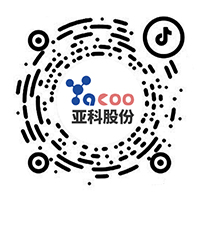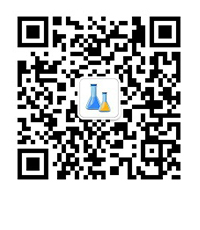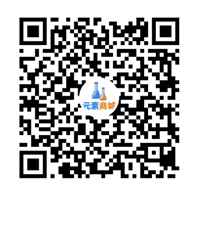Search Product
Structure Search
Search
Advantage Products
Location: Industrial Info
Professor Tsinghua talks about the future development of advanced recycling technology for power lithium batteries
In recent years, with the widespread popularization and replacement of electric bicycles (hereinafter referred to as "electric vehicles"), the problem of recycling used batteries for electric vehicles has increasingly become a hot spot of social concern. Lithium battery is the core component of new energy vehicles. Retirement battery recycling should be an important part of the life cycle of power batteries. At present, it is relatively extensive in China. If we do not grasp the advanced recycling technology of power lithium batteries, it will seriously restrict the development of the battery industry and even the new energy vehicle industry.
Recently, at the Power Lithium Battery Recycling Decision Consultation Salon hosted by the Beijing Science and Technology Association and the Literature Information Center of the Chinese Academy of Sciences, Fei Weiyang, a member of the Chinese Academy of Sciences and a professor at Tsinghua University, shared his thoughts on strengthening the research and development of advanced recycling technology for power lithium batteries. .
Scarce resources must be cherished
Lithium products are widely used in industries such as the nuclear industry, batteries, glass ceramics, and aerospace. In recent years, the demand for power batteries for electric vehicles has exceeded the traditional fields such as glass ceramics, and has become a major growth point. Although China's lithium resources are very rich, they also have limitations. For example, the total amount of lithium in Qinghai Salt Lake is very large, but the concentration of lithium in brine is very low, and the ratio of magnesium to lithium is extremely high. Therefore, it is very difficult to extract lithium from salt lake brine.
After years of efforts, China has made progress in the extraction of lithium from salt lake brines such as membrane, adsorption, calcination and extraction, and extraction. Some companies can use these technologies to produce thousands of tons of lithium products per year. However, the process equipment needs to be improved, the product quality needs to be improved, and the environmental protection needs to be strengthened. At present, battery-grade lithium products used in China are still heavily dependent on imported resources.
Over time, the number of decommissioned lithium batteries produced in China will soon reach the order of tens of thousands of tons or even hundreds of thousands of tons per year. “Only production is not recycled, does not conform to the law of sustainable development, and will further develop the natural environment. Produce a threat." Fei Weiyang pointed out that the positive electrode material of lithium battery contains precious metals such as lithium, nickel and cobalt. These scarce resources must be cherished and recycled.
Green development faces serious challenges
The structure of the lithium battery is relatively complicated, including the outer casing, the diaphragm, the positive electrode, the negative electrode, the copper current collector, the graphite, the aluminum current collector, and the like. At present, the lithium battery treatment process that is generally optimistic in the industry is a wet process. The battery casing must be first removed by mechanical means, then the leaching process is used to dissolve the valuable metal elements, and then the metal is recovered by precipitation, extraction and the like.
Fei Weiyan said: "The wet process elements have high recovery rates and relatively mild operating conditions, but a large amount of chemical reagents must also be used, which must be environmentally friendly."
However, domestic lithium battery recycling is basically a small enterprise or even a hand workshop. The technical means are simple and original, the effective resource recovery rate is very low, and it has caused serious damage to the environment. "Our battery recycling is still relatively extensive."
Future development trend of lithium battery recycling technology
For the future development trend of lithium battery recycling technology, it is first necessary to automate safe and efficient disassembly to improve efficiency and ensure safety. The second is to achieve efficient recycling of valuable metals. For all types of decommissioned lithium batteries, create advanced processes and equipment that efficiently leaching and recovering valuable elements. More importantly, the secondary pollution of the recycling process should be controlled to avoid environmental and health threats. The recycling of power lithium batteries is a national policy that protects the blue sky, clear water and pure land, and must be highly concerned.
Clever combination to promote coordinated development
"Realizing the recycling of decommissioned batteries requires multi-disciplinary research in mechanical manufacturing, metallurgy, chemistry, and chemical engineering. It requires cooperation in many aspects such as process, equipment, control, and management. It should be led by a large-scale battery factory to carry out production, learning, and Research, politics, and gold collaborate and innovate, and develop advanced recycling, leaching, and extraction processes for different types of batteries, and establish a scientific recycling system.” Fei Weiyang suggested.
“The real economic benefits of technological innovation will not come from those dazzling ideas, but from the ingenious combination of emerging technologies that are maturing and traditional technologies that have existed for decades.” Fei Weiyang pointed out that “retired Battery recycling seems to be a low-end traditional technology, but industry development and environmental protection urgently require us to adopt advanced and mature mechanical manufacturing, hydrometallurgy and chemical engineering emerging technologies to enhance existing battery recycling processes and equipment."
"The combination of advanced technology and basic industry will promote the synergy between the battery recycling industry and new energy vehicles." Fei Weiyang called for the automation and large-scale recycling of decommissioned batteries, whether for efficient use of resources or to meet environmental requirements.
Related links: lithium battery
Edited by Suzhou Yacoo Science Co., Ltd.












